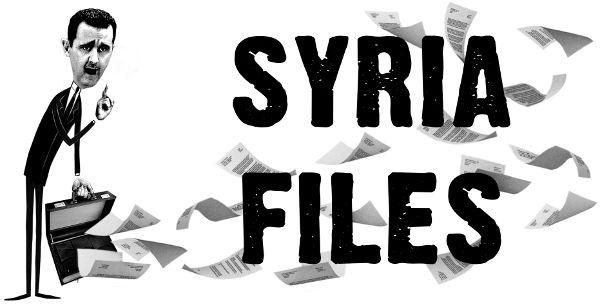
While Julian Assange has struggled lately to prevent his extradition to Sweden for sexual misconduct charges, it hasn’t stopped the founder of whistle-blowing website Wikileaks from releasing two million “embarrassing” emails by Syrian political figures written between August 2006 and March 2012. Titled the “Syria Files,” the emails shed light on the Syrian government and the economy and “how the West and Western companies say one thing and do another,” according to Wikileaks.
“The material is embarrassing to Syria, but it is also embarrassing to Syria’s opponents. It helps us not merely to criticise one group or another, but to understand their interests, actions and thoughts. It is only through understanding this conflict that we can hope to resolve it,” Assange said in a statement.
The emails in question have been taken from 680 Syrian “entities” and domain names, including those from the Ministries of Presidential Affairs, Foreign Affairs, Finance, Information, Transport and Culture. Today, Wikileaks released six batches of releases, but plans to release all 2,434, 899 emails in a span of two months, while working with select participating news outlets to curate the trove of data. The only American press that has been announced as a partner thus far has been the Associated Press, but more publications are set to be announced during the two-month period.
The current batch of released emails involves correspondence between the Greece-based Intracom Holdings, whose Telecom division was contracted for €40 million by Syrian Wireless Organization (SWO) for the deployment of a wireless telecommunications network in Syria, and Selex Elag, an Italian defense communications company. Much of the first batch of emails involves the cooperation between the two companies regarding the purchases and installation or repair of telecom equipment including vehicular radios, Tetra antennas, chopper cables and connectors. However, we were able to uncover a short list of several SWO employees, whose passport numbers and titles were revealed, and an order for motorcycles.
This latest Syria-focused leak comes after its last release in February 2012 titled, “The Global Intelligence Files” comprised of emails obtained by Anonymous from the United States Intelligence firm, Stratfor.
The current uprising in Syria began last March with public demands seeking an end to the five decade-long regime of the Ba’ath Party. Current Syrian president Bashar al-Assad deployed the Syrian Army to retaliate, and a civil war has waged on since between the Syrian troops and anti-government rebels.


